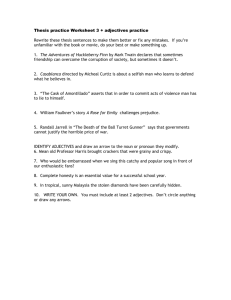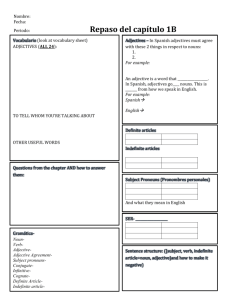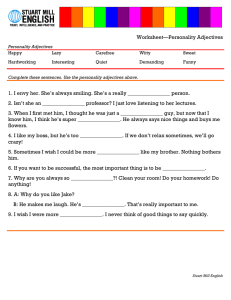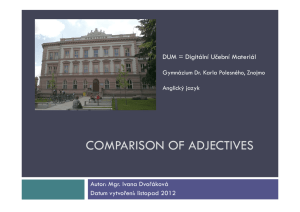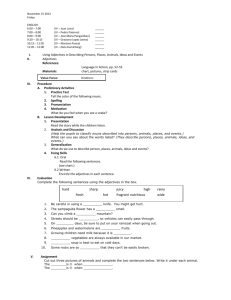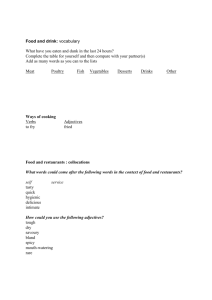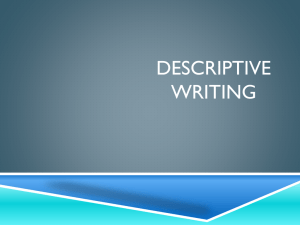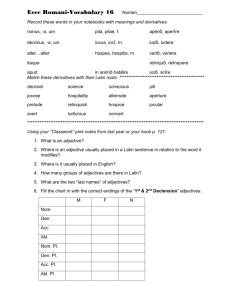ADJECTIVES An Adjective is a word used to qualify or describe a
advertisement
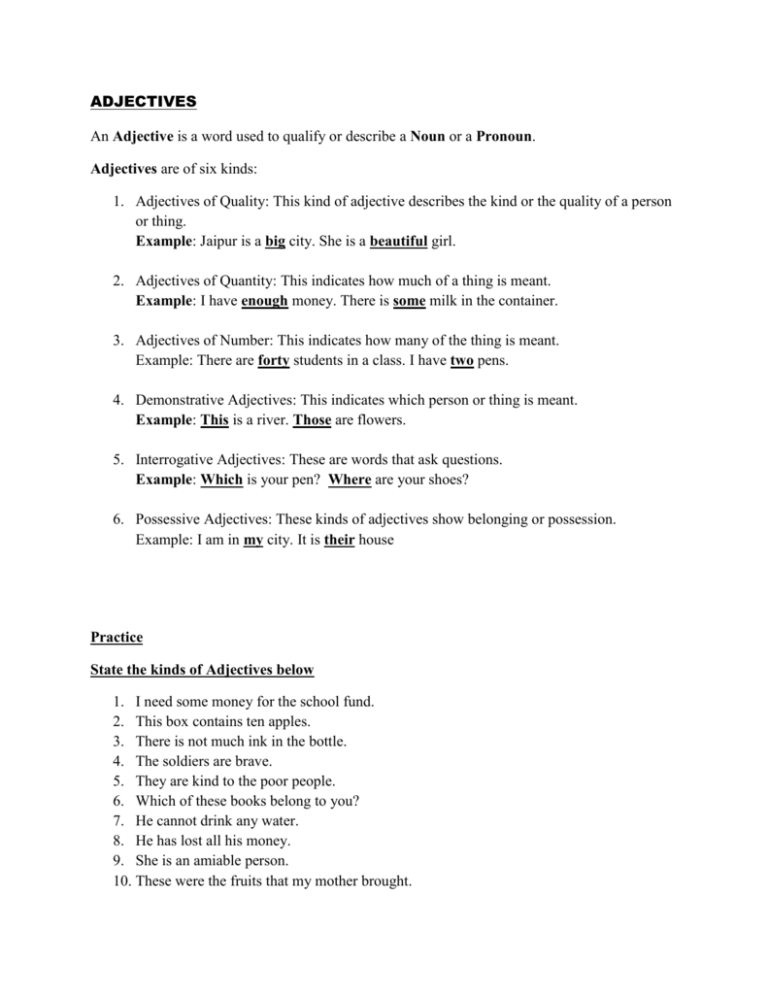
ADJECTIVES An Adjective is a word used to qualify or describe a Noun or a Pronoun. Adjectives are of six kinds: 1. Adjectives of Quality: This kind of adjective describes the kind or the quality of a person or thing. Example: Jaipur is a big city. She is a beautiful girl. 2. Adjectives of Quantity: This indicates how much of a thing is meant. Example: I have enough money. There is some milk in the container. 3. Adjectives of Number: This indicates how many of the thing is meant. Example: There are forty students in a class. I have two pens. 4. Demonstrative Adjectives: This indicates which person or thing is meant. Example: This is a river. Those are flowers. 5. Interrogative Adjectives: These are words that ask questions. Example: Which is your pen? Where are your shoes? 6. Possessive Adjectives: These kinds of adjectives show belonging or possession. Example: I am in my city. It is their house Practice State the kinds of Adjectives below 1. I need some money for the school fund. 2. This box contains ten apples. 3. There is not much ink in the bottle. 4. The soldiers are brave. 5. They are kind to the poor people. 6. Which of these books belong to you? 7. He cannot drink any water. 8. He has lost all his money. 9. She is an amiable person. 10. These were the fruits that my mother brought. DEGREES OF ADJECTIVES Positive Form These are the simple adjectives that simply describe the noun without comparing it to another big, sweet, clean, etc. She has a big black dog. He is a sweet boy. The cupboard is clean. Comparative Form These are used when we are comparing two nouns and need to show which noun possesses the adjective or character in a greater or lesser amount, when compared with the other. - bigger, sweeter, cleaner, etc. I have a big dog but hers is bigger. He is sweeter than the other boys. The cupboard is cleaner than before. Superlative Form This form is used when three or more nouns are being compared and we need to show that one or more of the nouns posses the adjective or characteristic to the highest amount possible. We usually add ‘the’ before the superlative form. - biggest, sweetest, cleanest, etc. She has the biggest dog in the colony. He is the sweetest boy in his class. The cupboard is the cleanest thing in the house. Positive Comparative Superlative Bold bolder Boldest Bright brighter Brightest Black blacker Blackest Great greater Greatest Old older Oldest Proud prouder Proudest Warm warmer Warmest Mean meaner Meanest Able abler ablest True truer truest Simple simpler simplest Nice nicer nicest Fat fatter fattest Red redder reddest Sad sadder saddest Dry drier driest Busy busier Busiest Early earlier Earliest Ugly uglier Ugliest Active more active most active beautiful more beautiful most beautiful Careful more careful most careful Proper more proper most proper Faithful more faithful most faithful Good better best Bad worse worst Little less least Old older oldest Far farther farthest Black Blacker Blackest Fair Fairer Fairest Clever Cleverer Cleverest Difficult More Difficult Most Difficult Careful More Careful Most Careful Handsome More Handsome Most Handsome Interesting More Interesting Most Interesting Positive Comparative Superlative Clever Cleverer/ More Clever Cleverest/Most Clever Quiet Quieter/ More Quiet Quietest/ Most Quiet Example He is cleverer than her. He is more clever than studious. This is the most quiet it gets here. This is the quietest place. She is braver than other girls. Brave Braver/ More Brave Bravest/ Most Brave Sure Surer/ More Sure Surest/ Most Sure She was more brave than afraid. He was surer of the result than others. You’ll be more sure about the concept after you read the chapter.
